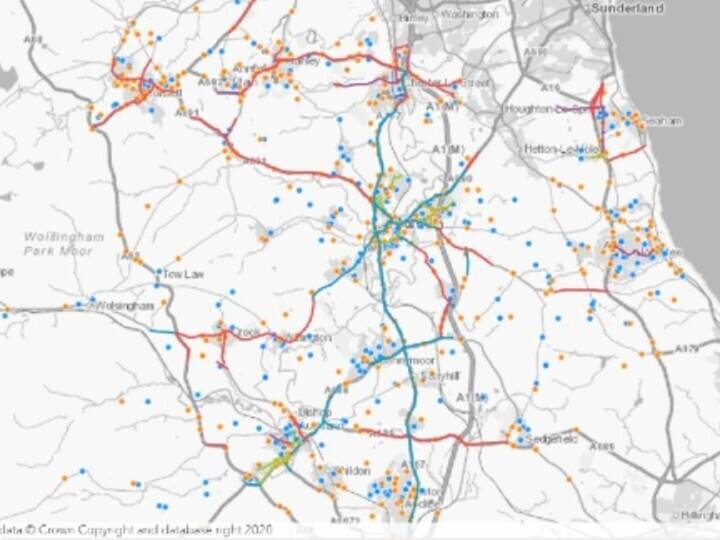Linking people and places - case study from Denbighsire County Council for GeoPlace Exemplar Awards 2018
Denbighshire County Council used Unique Property Reference Numbers (UPRNs) to assess the impact of changes in Energy Performance Certificate (EPC) legislation on private rented properties in the area.
The regulations relating to private rented properties and energy performance changed on 1 April 2018. An EPC must now be provided for every house that’s built, sold, or rented. The role of an EPC is to identify ways in which a property saves or wastes thermal energy – its relative energy efficiency.
Landlords and property owners must make sure their properties meet these minimum energy efficiency standards. To encourage any improvements needed, the granting or continuation of existing tenancies will be restricted if a rented property has an EPC of F or G.
Denbighshire County Council wanted to improve the housing conditions of its residents by making sure its local landlords were complying with this new legislation. It also wanted to see if it could secure funding for improvements needed to those properties, at little or no cost to the landlords or the authority. To achieve this, the council needed to change and improve the way it assessed these properties.
UPRNs provided the authoritative link between landlords’ properties and Energy Performance Certificate Data. As a result, Denbighshire secured funding for £377,650 of improvements to those properties.
Linking UPRNs
Denbighshire matched the UPRNs of rented properties in the area with data obtained from Rent Smart Wales – a central licensing authority that processes landlord registrations, and then grants licences to landlords and agents who need to comply with the Housing (Wales) Act 2014.
By matching UPRNs to that data, the density and distribution of rented properties could be mapped accurately in a way that made it easy to understand. Rented properties that didn’t meet the new regulations could be identified quickly.
The results were then linked to the Competent Persons data so that officers could also identify which energy efficiency measures need improving.
This process enabled Denbighshire County Council to write an authoritative Local Authority Flexible Eligibility policy that secured funding for £377,650 of improvements to these properties under the Energy Company Obligation (ECO).
Delivering results
The primary outcome was a snapshot of rented properties highlighting which landlords were already complying with the regulations, which landlords hadn’t yet registered under the Housing Wales Act (2014), and which rented properties did not have an adequate EPC.
The first results highlighted 450 private rented properties with an EPC rating of F and 198 private rented properties with an EPC rating of G. Of those, 286 properties needed loft insulation and 383 needed wall insulation.
With that authoritative list, Denbighshire County Council was able to secure funding with a capital value of around £377,650 from an Energy Company Obligation (ECO) provider. This meant all of these tenants’ housing conditions could be improved at little or no cost to the landlords.



